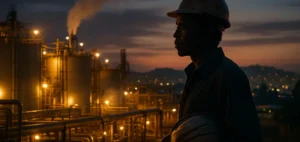Setting a maximum price “always carries the risk that producers will then sell their gas elsewhere, and that we Europeans will end up with less gas instead of more,” the chancellor said in front of the Bundestag before an EU summit.
“This is why the EU needs to coordinate closely with other gas consumers, for example Japan and Korea, so as not to compete with each other,” he argued.
Several proposals from the European Commission to reduce energy prices will be discussed on Thursday and Friday at a summit of heads of state and government in Brussels. Fifteen countries, including France, had called for a price ceiling on European gas imports in early October — but Berlin is fiercely opposed to this, fearing that it would aggravate LNG supply tensions in a tense world market, as are the countries of Central Europe (Austria, Hungary, etc.) that are still dependent on Russian hydrocarbons and fear that Moscow will turn off the tap completely.
Olaf Scholz, on the other hand, welcomed the European Commission’s proposals “to create purchasing groups of European companies to buy gas together”.
The Chancellor renewed his call to producer countries to act to limit the rise in prices: “I am convinced that countries like the United States, Canada or Norway, which stand in solidarity with Ukraine, have an interest in ensuring that energy does not become unaffordable in Europe.
“Putin also uses energy as a weapon,” he repeated. But the chancellor assured that this did not affect the determination of the West to support Ukraine.
The “scorched earth tactics” conducted by Russia “only strengthens the determination and perseverance of Ukraine and its partners,” he said.
“The terror exerted by Russian bombs and missiles is an act of desperation” on the part of Moscow, according to the German chancellor. “Ukraine will successfully defend itself. And we will support it – as long as it takes!” he added. Thus, thanks to the commitment of the West, the “financial needs” of Ukraine by the end of the year are “practically covered”, assured Olaf Scholz.




















